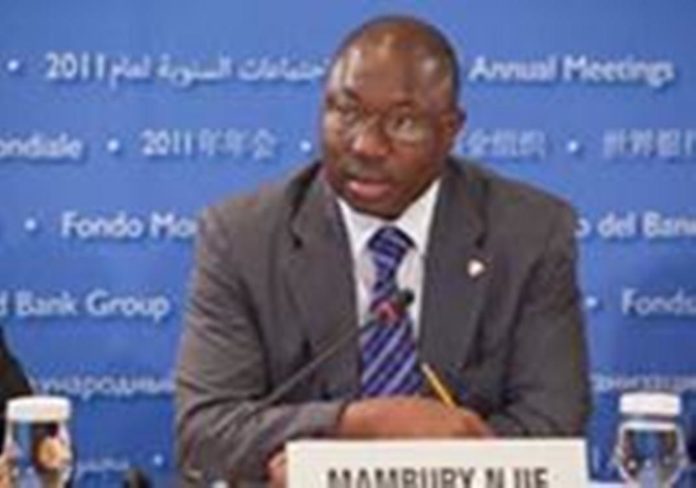By Awa B. Bah
The Minister Finance and Economic Affairs on Monday June 10th 2019, tabled before deputies the report of the Auditor General on the audited financial statements of the Central Government for the year ended 31st December 2016.
This is the first report to be considered in the sittings of the Fifth Ordinary Session in the 2019 Legislative year. After adopting the record of votes and proceedings during Tuesday’s sittings, came the laying of papers and reports by the Minister of Finance and Economic Affairs Mambury Njie.
The second paper to be laid by the Minister was the loan agreement between the Government of the Gambia and the Islamic Development Bank regarding the small ruminant production enhancement project. This paper was laid by the Minister for consideration and ratification by Deputies.
Another paper was the ratification of the framework agreement between the Republic of the Gambia and the Islamic Development Bank for the small ruminant production enhancement project. The paper on the agency agreement between the Gambia and the IDB, is on small ruminant production enhancement. The Minister in his summary said the objectives of the loan agreement among others will enhance and improve small ruminant production with access to Islamic microfinance and capacity building, and a master development plan for livestock value chain, project management and coordination. He called on the house to consider and adopt the paper.
At this juncture, Members took turns to comment on the report and papers laid by the Minister for Finance before considering it. According to some Members, the validation and implementation of projects in the Gambia particularly in agriculture, is meaningless if such projects cannot make positive impacts in the lives of the people. Some Deputies argue the Gambia has benefitted from lots of such projects most of which have ended in failure; that the country’s agriculture sector should have passed this level of donor support by now. Deputies called on the concerned authorities to always put parliament in the picture of what is going on with such projects and the impact it has on the lives of beneficiaries. Deputies lament that while most agricultural projects are implemented outside the greater Banjul area, implementing officers remain in the country’s main urban area making vital projects fund being spent on unnecessary logistics. Deputies argue that Government continues to sign loan agreements with development partners based on conditions unknown to beneficiaries; that for Parliament to approve such loans in such conditions and situations, will be unfair. They demanded that the Minister of Finance spell out to them clearly how and on what condition these loans are to be given to farmers in the thirty nine districts across the country. Members argued that loans are expensive and should be paid.
The Minister of Finance in his response to the issues raised by Deputies, said the small ruminant project has thirty eight interventions sites countrywide; that he can conclude that the project is very timely and important for the nation. According to the Minister, most of the questions and issues raised by NAMs are technical; that he is not in a good position to answer them but referred them to the new Agric. Minister Amie Fabureh. Finance Minister Njie said the effectiveness of the project has been extended to the end of June 2019, before being approved by donors; that when he took office, he did not take any loan; that this caused the delay because loans have to be properly scrutinized to ensure their sustainability. The Minister said the country’s loan portfolio was 129% of GDP, when he took office. The loan he said is bankable and amounts to 4.75 million dollars which he said, is very enough to fill the gap in the sector; that to move any of these funds from the project’s budget line will require consultation with funding agencies. On the issue of monitoring, the Finance Minister said they have established internal and external loan budgetary allocation and disbursements. He urged NAMs to consider the loan agreement as it will go a long way in alleviating the challenges faced by the sector. The loan agreement was accepted.
Meanwhile the report of the Auditor General on the audited financial statements of the Central Government for the year ended 31st December 2016, was referred to the Finance and Public Accounts Committee of the National Assembly for further engagement.




















